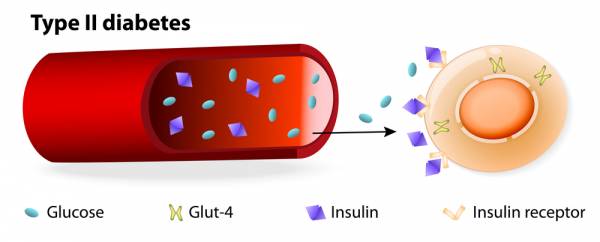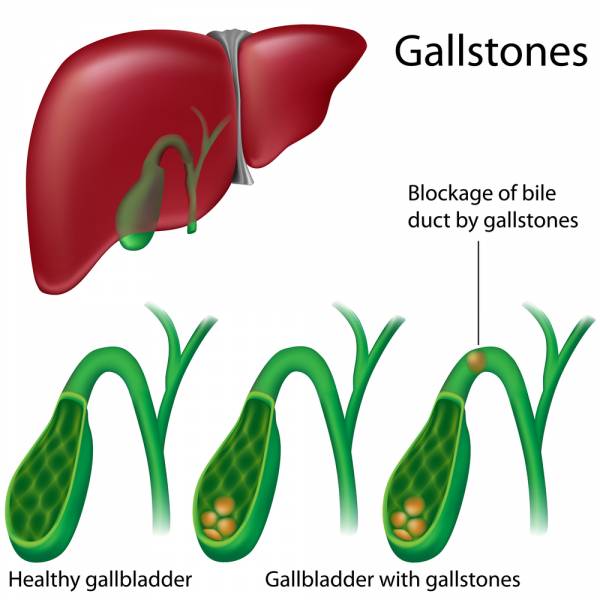A steamy hot cup of fresh brewed coffee is the only thing that gets many of us through the morning. But coffee may be doing much more than keeping us alert and functional throughout the day.
A steamy hot cup of fresh brewed coffee is the only thing that gets many of us through the morning. But coffee may be doing much more than keeping us alert and functional throughout the day.
According to new research, a chemical found in coffee may help prevent major obesity-related issues that lead to diseases such as type 2 diabetes and cardiovascular disease. The consumption of coffee may help reduce the risk of diseases and disorders that affect many of us, including insulin resistance which affects 25-35% of the population of Westernized countries.
RELATED: Prevent Type 2 Diabetes With Resistance Exercise
Chlorogenic Acid
Chlorogenic acid (CGA) is a natural chemical compound and antioxidant. Out of all the plant species that contain the acid, coffee has by far the greatest concentration of CGA at six to seven percent.
“Studies have shown CGA significantly reduces two of the most common side effects of obesity: insulin resistance and the accumulation of fat in the liver.”
The chemical is responsible for the slightly bitter notes found in certain types of coffee.1 But this chemical has more to offer than its taste and antioxidant benefits. Studies have shown CGA significantly reduces two of the most common side effects of obesity: insulin resistance and the accumulation of fat in the liver.2
Insulin Resistance
This condition, which plagues overweight people and underpins type 2 diabetes, occurs when cells have difficulty absorbing glucose from the bloodstream. The body needs higher levels of insulin to absorb glucose into the cells. But insulin-producing beta cells often fail to meet the demand to produce more insulin, causing elevated blood glucose levels, and potentially pre-diabetes or type 2 diabetes, as well as heart attacks.3
RELATED: Working with Special Populations Part 3: Diabetes Mellitus
Research suggests that CGA may prevent insulin resistance. CGA slows the release of glucose into the bloodstream, which means a slower rate of insulin release and lower blood glucose levels. CGA also increases the signal protein for insulin receptors in liver cells. When insulin binds to these receptors, it stimulates the breakdown of glucose by the liver, once again driving down blood sugar levels and increasing insulin sensitivity (the opposite of insulin resistance).4

In a recent study at the University of Georgia, researchers used mice that were fed a high fat diet and injected them with CGA twice per week. The CGA injections made a significant difference in the maintenance of normal blood sugar levels in the mice, confirming that CGA protects against insulin resistance.5
RELATED: Is Coffee Good or Bad for Your Testosterone?
Reduction in insulin resistance has a significant impact on type 2 diabetes prevention. In another study, researchers found a fifty percent risk reduction for type 2 diabetes in people who drank 26 cups of coffee a day, compared to people who drank seven.
Healthy Liver Function
Accumulation of fat in the liver, another negative side effect of obesity, can lead to poor liver function. A healthy liver is critical. A person with liver failure can only live one to two days.6 CGA has been found to play a large role in maintaining both healthy liver composition and function.
CGA is a cholagogue, which means it stimulates the flow of bile from the liver and through our systems. Bile primarily facilitates fat digestion and is a natural laxative with cleansing properties.7 By promoting bile flow, cholagogues help prevent accumulation of fat in the liver and other issues such as gallstones.8 For this reason, cholagogues are largely used for alleviating diseases of the gallbladder and liver.
“With the medical cost of obesity at $147 billion dollars a year, anything that can help reduce this staggering burden is sorely needed.”
Chlorogenic acids are not the only substances that serve as cholagogues, but the evidence for their success is the strongest, largely because of the research conducted with coffee. Apart from the benefits that CGA provides for the liver as a cholagogue, it also reduces liver inflammation.9

Start Your Day With CGA
According to the Centers for Disease Control and Prevention, more than one third of American adults are obese. With the medical cost of obesity at $147 billion dollars a year, anything that can help reduce this staggering burden is sorely needed.5
RELATED: 29 Studies Confirm Caffeine Increases Athletic Performance
Starting your day with CGA is a public and personal health habit that’s easy to learn to love, if you don’t already love it. For those of us who already make a habit of guzzling this aromatic stimulant as soon as our eyes peep open in the morning, we can do so knowing that this “addiction” is doing our bodies all kinds of good.
References:
1. “Chlorogenic Acid.” Coffee Chemistry. Accessed November 14, 2014.
2. University of Georgia. “Chemical in coffee may help prevent obesity-related disease.” ScienceDaily. Accessed November 27, 2014.
3. “Insulin Resistance and Prediabetes.” National Diabetes Information Clearinghouse (NDIC). Accessed November 18, 2014.
4. Stokel, K. “Are We All Pre-Diabetic?” Life Extension. Accessed November 18, 2014.
5. University of Georgia. “Chemical in coffee may help prevent obesity-related disease.” ScienceDaily. Accessed November 27, 2014).
6. Bergner, P. “Herbal Treatment of Functional Liver Disease.” Herbal Treatment of Functional Liver Disease. Accessed November 15, 2014. h
7. “Cholagogue.” The Naturopathic Herbalist. Accessed November 19, 2014.
8. Chang, J. “My Personal Journey of Healing.” Sensible Health. Accessed November 22, 2014.
9. Shi, H. “Chlorogenic Acid Reduces Liver Inflammation and Fibrosis through Inhibition of Toll-like Receptor 4 Signaling Pathway.” Toxicology. 2013 Jan 7;303:107-14. doi: 10.1016/j.tox.2012.10.025. Epub 2012 Nov 9. Accessed November 16, 2014. .
Photos courtesy of Shutterstock.






